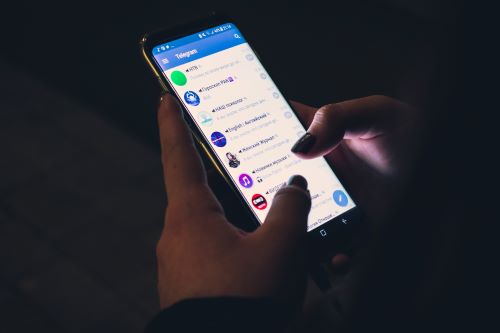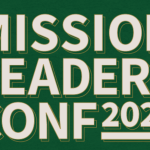This past week, we continued to search for the best communications app for those working in places where locals aren’t like-minded. One user wrote, “I don’t have good answers, either — I have lots of co-workers that use WhatsApp, and I reluctantly participate in one WhatsApp group, because I need to, even if I’m deeply suspicious of the privacy issues. (Click “Read More” for LOTS more from this very informed I.T. Brigada participant.)
“An aside — remember that there’s a difference between security and privacy. WhatsApp is a good example, where the technical security of end-to-end encryption is pretty good, but where the big questions are privacy, of who has access to the data and metadata, and what they may do with that access. In the missions community, among non-technical users, it’s easy to confuse the two.
“Even though WhatsApp is owned by Facebook, it’s my understanding that Facebook hasn’t managed to integrate WhatsApp into Facebook’s overall infrastructure. To me, that indicates that the value of WhatsApp to FaceBook may be more on what they can extract in metadata (especially from the APIs) than the content itself.
 “When I get started interacting about metadata, something that frequently comes to mind is a piece published at Business 2.0 called “Six Degrees of Mohamed Atta” in December of 2011. This one is analysis of the 9/11 conspiracy, that does a pretty effective job of using network analysis to identify the roles of everybody involved (especially the planning), based on publicly-available logs of communication. I believe that this analysis draws only on metadata — who was in touch with each other, including frequency, and times and lengths of connection, and not the connections themselves.
“When I get started interacting about metadata, something that frequently comes to mind is a piece published at Business 2.0 called “Six Degrees of Mohamed Atta” in December of 2011. This one is analysis of the 9/11 conspiracy, that does a pretty effective job of using network analysis to identify the roles of everybody involved (especially the planning), based on publicly-available logs of communication. I believe that this analysis draws only on metadata — who was in touch with each other, including frequency, and times and lengths of connection, and not the connections themselves.
“The main article is around the net in PDF format in numerous places, including http://faculty.cbpp.uaa.alaska.edu/afgjp/PADM610/Six%20Degrees%20of%20Mohamed%20Atta.pdf. The gist of the article is as much about what can be done with network analysis as the specifics of 9/11, but where it’s using 9/11 as a poignant example. Further useful commentary at https://firstmonday.org/ojs/index.php/fm/article/view/941/863.
Something that’s especially interesting is that the Business 2.0 article ran in December of 2011, not years later. It’s a good example of just what can be done with metadata.
“Thinking a bit further, I’ve just done a recent re-read of God’s Smuggler, with a new epilogue that was published in about 2001. In that, Brother Andrew explains that after the fall of Communism, he was able to get access to the files that entities like the KGB and the East German Stasi had on him, and noting just how much detail was there, not just about him personally, but his activities, places he visited, and pretty much all of his contacts. He also notes that a former KGB officer told him that in the KGB, God’s Smuggler was required reading. (BTW, I found that as a missionary, there’s a lot of good lessons to review in God’s Smuggler — I highly recommend it, including a careful reading of the epilogue in the newest edition).
 “It’s useful to note that he was able to do what he did, not because of his own cleverness, but because it was guided by the sovereignty of God, of “making seeing eyes blind”, and being obedient to His callings. For years, I’ve also noted that with Corrie Ten Boom, after she was released from prison in 1945, she found that she could not do the Underground activities that she had done before she went to prison, because God was no longer leading her in that direction.
“It’s useful to note that he was able to do what he did, not because of his own cleverness, but because it was guided by the sovereignty of God, of “making seeing eyes blind”, and being obedient to His callings. For years, I’ve also noted that with Corrie Ten Boom, after she was released from prison in 1945, she found that she could not do the Underground activities that she had done before she went to prison, because God was no longer leading her in that direction.
“The upshot of all of this is, for those of us that work in restricted access countries, while it’s important to be as careful as we can on security and privacy issues, we are also entirely reliant on the protection that only God can provide. If God is leading, then we can do some pretty extreme things. But those are often only one time, or for a short season, and when we start reducing things down to formula (and human effort), it’s easy to get into trouble.
“It’s important to remember that even though there may be something of a romantic adventure aspect to being “secret agents”, it’s all deadly serious, and for us as missionaries, we’re rank amateurs, often playing against the very best professionals. Thus, for all our methodologies, we need to assume that we’re not fooling anybody, and what keeps us going is God’s provision.” (Thanks so much to this Brigada participant, who gave permission for us to share his exchange, but preferred not to have his name listed publicly.)
So what does this mean? There are no easy answers. Just remember — WhatsApp is up for grabs, now that it has been purchased by Facebook. We’ve heard great things about Signal, but honestly, it was a bit complex and convoluted for our taste — plus, the Brigada participant who originally asked this question was looking for a messaging app that would also allow for a live call (like Whatsapp). I guess that would knock Wickr Pro out too? We’ve also heard great stuff about Threema, but, again, users on both ends need to be legitimate Threema users. Hoccer is also a good choice, but offers no direct “telephone-like” interface. Have you all hear of others?













Thanks to Laura who wrote in to remind us to include Wickr Pro. We LOVE Wickr Pro, but last we checked, like we mention above, they didn’t have calling capability.
Signal DOES do voice calls and video calls.
Indeed I have done voice calls and video calls to South Asia from Europe using Signal. I would advise people to use it as an alternative to Whatsapp.
Thanks for clarifying that Signal will do voice/video. So if both sender and receiver are willing to jump to Signal, that’s a GREAT option!
I am compelled to reply to this, and my words may be seen as sanctimonious, self-serving, or repetitious.
As a life-long Christian but with more time spent secular than Christian I think the major difference is in segregating mailing lists, being naive and also seeing boogie men and women.
OK, if all that sounds good to you and you are adjusting your eye lashes and lipstick in thoughtful contemplation . . . assuming you are female, if so my name is John Alexander from DramaShare.org, if not I am Toby Tooufenblanker from Reach for the stars dot tomorrows.good. yip
OK, serious face now, (which is somewhat underused in my ministry), . . .
I like what the author said about “the difference between privacy and security.”
And I kinda, sorta, kinda, not so much, applaud the folks such as Norton, Microsoft, and the long list of Christian techie groups who, again, kinda, sorta, kinda, not so much, patrol the dark corners of cyberspace finding evildoers and whammo, zonko, bad guys eliminated. That mostly only works in Norton commercials. Remember we are the few, the bad guys are legion, (and not legions of angels, as in the heavenly throng). And before Batboy can get his bat, (spelled with an “A”), off the seat of the Batmobile, the bad guys have multiplied and mated with other bad boys and girls and all of a sudden we have millions of badettes, some of whom are sitting around your table, remorsefully reminding you that you, Mr. Parent have not topped up his/her YouTube account so she can grow in the knowledge of the Lord. I am amazed how they can keep a straight face. But Mrs Parent smiles and says, “He’s such nice boy and remember he’s only 36!”
Is there a gem of wisdom in my words, (not usually but in this case, could possibly happen).
My point is no methodology or program is likely safe for more that a few days or hours or minutes. Knowing this we can either throw in the cybertowel and go back to a “prayer only” strategy, I KNOW it works, but may not be in a supported format with your target group.
My strategy in business (Secular and not) is to determine which messages you want stolen and which you don’t. See, fact is unless you have a billion dollar security budget, (and I realize some missionaries do), fact is its sooner or later gonna be picked off, worse than an NFL pass.
So what should your strategy be:
1. If your message is going to expose anyone to great danger and even remote chance of loss of life, DO NOT HAVE THEM ON ANY LIST NOR REFER TO THEM. The gains will be not even in the right area code, that’s a let the Big Guy upstairs work that out.
2. However, in almost all cases your message telling Freeda Nicegal that her Mom is expecting, that won’t likely hit the Richter scale. GO FOR IT. . . . Especially if the complete message is tha Mom is expecting a letter home.
3. Avoid outright thoughts which could affect or hinder the spreading of God’s word.
4. THIS IS A BIGGIE . .. In your planning plan for sending out messages that you know might be a target for spammers and “the other side.” Realize these people are people. (Wow that was good thingie there, gotta maybe possibly use that again next century.) We had a techie group, beautiful people, Muslim faith who had an awesome techie. During a meeting he told me how he was enjoying reading my content on my site. “But,” he said, “my church is worried I might get conwerted!”I said, “never happen, I’m not that deep.” Ever since he left that position I have wondered . . . . did a conwersion happen? . . .And, since this is a possibility we need to be aware that there are good and smart people on both sides of that fence . . . be aware that outreach is not restricted to the guys who have a fish on the back of their Nash Rambler. . . For the uninitiated the was a car.
If my sense of humor is overflowing just remember my Momma is crazy about me.
John Alexander
DramaShare
And I am not making fun in any way of my Muslim friend, he knows I love him!!
Telegram will soon have encrypted phone calls:
https://www.makeuseof.com/tag/telegram-launches-encrypted-video-calls/
It seems like points are being made that this whole topic is confusing and hard to verbalize. Also, that we need to be serious about prayer and learn how to move in the spirit and trust in God. And, of course, do the best we can while trusting in God.
Telegram will be a GREAT option once they have encrypted calls.